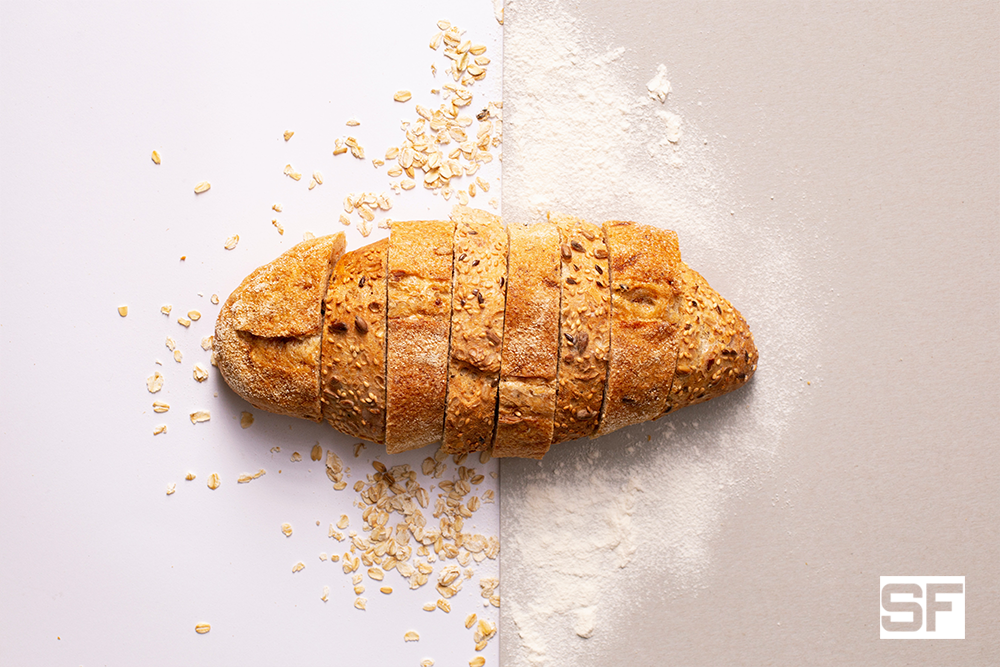Why You Should Not Eliminate Carbs From Your Diet
Fad diets and “special hacks” promoting high fat and very low carbs diets and have been around for a while now. All claiming to be the fast solution to a lean physique.
In this article, I’ll explain why I’m against completely eliminating them.
So whether you are a carbs person or not, keep on reading, you might learn something new.

The first and most important thing you have to understand is that weight loss is basically a SIMPLE equation – Calories in vs calories out.
That’s right.
Eating in a caloric surplus will result in weight gain, regardless of the source, whether you go low in carbs or not. You can have zero carbs salads all day and still gain weight – no matter how healthy they are.
Eating in a caloric deficit will cause weight loss.
“But I see so many people who lost so much weight just by reducing their carbs intake”.
There is no doubt that these people do lose weight, but this is because eliminating carbs also means eliminating calories – i.e creating a caloric deficit. The exact same thing will happen if you go higher on carbs and lower on fats (protein should always be moderate-high).
I’ll say it again:
Carbs won’t make you fat. A caloric surplus will.
The myth around carbs and fat gain is insulin-related – as carbs raise insulin which then blocks the release of fat for energy and drives additional nutrient storage. The basic idea is that low carbs = low insulin levels, which will cause your body to burn more fat while storing less. On the other hand, if you will go high carbs you apparently suppose to gain fat.
In reality… This is just a misconception.
Fat gain can only occur if the rate of lipogenesis (glucose conversion to fatty acids) exceeds the rate of lipolysis (the breakdown of triglycerides into glycerol and fatty acids).
On the other hand, when lipolysis exceeds lipogenesis you are burning fat.
But.. and here is the fact that most people ignore –
Insulin only goes up in response to a meal – which means it will go up during the hours after the meal. But what happens when you are fasting? – during the time frame between meals or while sleeping? everything balances out (assuming that you are in a caloric deficit of course). that because our body is a machine that works body works 24/7, and this is the time frame we should pay attention to while approaching fat loss and diet.

Source: weightology.net
“>
Source: wikipedia.org
The second point we’ll discuss is that whether you go keto or high carb – Non is superior for fat loss purposes.
In a recent study, researchers examined whether there is no difference between a high carbohydrate diet to a ketogenic diet when it comes to fat loss. They came to the conclusion that there was no increase in body fat loss when using a ketogenic diet compared to a high carbohydrate diet, debunking the common belief.
It’s important to note that this wasn’t the only study that was conducted. Other studies (1,2) also show that there is no difference in body fat loss when eating low carb diets even with as little as 5% — 16% of daily intake.
Now that we’re done with all “complicated stuff” let’s go over the main reasons you shouldn’t exclude carbs from your diet.
# 1 Eating Carbohydrates Will Improve Your Athletic Performance
Our female clients don’t train just to look good. They want to feel good, be toned and athletic.
Research shows that glycogen stored in your muscles is the primary fuel source of moderate to intense exercise and that a sufficient carbohydrate intake that keeps your muscle and liver glycogen stores full can improve workout performance.
This means when you workout your body will be looking for glycogen to fuel this exercise, particularly if it’s moderate to intense exercise like lifting weights, doing calisthenics or intense cardio such as sprinting, boxing, etc.
Having a sufficient amount of glycogen in the muscles often translates to a better workout. Whereas, a lack of glycogen for the body to draw on will result in your feeling tired and weaker while working out, especially if doing high-intensity training.
# 2 – Post Workout Insulin Response From Carbs
After your workout, you should support your body with nutrients to feed your muscles. This is best accomplished by spiking your insulin levels.
Consuming simple carbs after your workout (while your body is in the anabolic stage a.k.a your muscle cells are primed for muscle building) will stimulate the release of insulin, which pushes amino acids into muscle cells to begin the process of repair.
# 3 – Carbs Are Important For Brain Function
Your brain needs carbs to function properly. it runs on glucose, and you get glucose from carbs.
If you don’t have enough of them, your ability to think properly and remember stuff will decrease because neurotransmitters in your brain will not have enough glucose to synthesize properly.
# 4 – Carbs contains important vitamins
Especially whole grains which contain lots of B vitamins, (help you make red blood cells).Fruits and vegetables are also packed with essential nutrients like vitamins B and C.
# 5 – Carbs Are God Damn Tasty
Why would you deprive yourself of something that tasty?
To Sum Up,
Carbohydrates are a major source of fuel and nutrients for our bodies. It’s an important diet component to every person who is looking to train hard, build more muscle or maintain their muscle in a calorie deficit. Not only do they not cause you to gain weight (a calorie surplus does that) but they also help to fuel intense workouts.
Just like with training – not too much, not too little, and just the right kind can yield great results.



